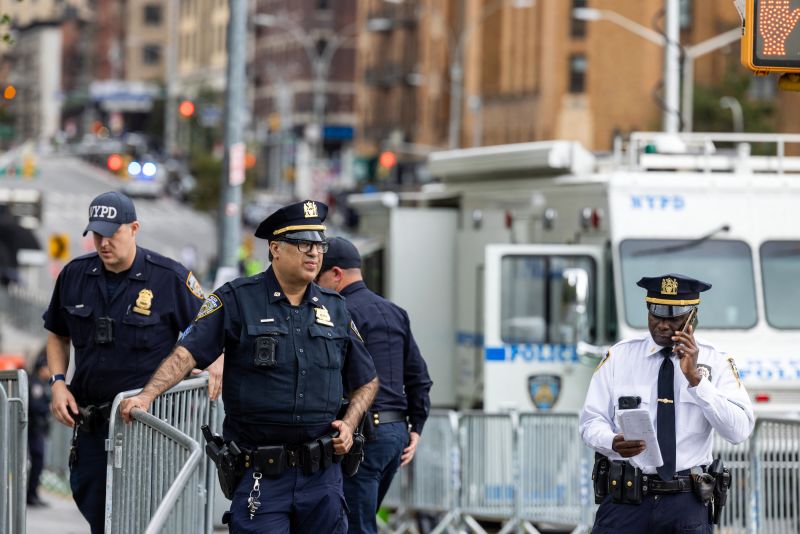It’s one of the biggest security operations in America: Protecting thousands of world leaders and their entourages at the annual high level United Nations General Assembly meeting in New York.
What is most impressive is seeing a huge wall of monitors in both. It was clear there are cameras everywhere – some well-hidden, scattered all over the UN grounds aimed at doors, the garage, UN hallways, and driveways. There are 1400 cameras in total, UN officials said.
High shots from cameras looking at nearby corners outside the UN are always on. The UN security officials said its impossible to monitor all 1400 cameras at the same time but there are personnel checking out the scene.
If a visitor – or more nefarious character – runs into problems using their credential to enter the complex, an alarm will sound in the security control rooms, with an automated voice warning that the individual has been “Rejected! Rejected! Rejected!”
Remind me to fix my tie when I am walking through the UN grounds.
It’s a team effort between the UN, New York Police Department, Secret Service and diplomatic security. They’ve got a lot of people to watch over – over 22,000 delegates were counted during this year’s UNGA attendees (pronounced like hunger).
Because its an annual event, security keeps a file. UN security says they learn a little bit each year.
“Knock on wood; we have never had a security incident related to heads of state here. We have pulled out all the stops,”, said US Ambassador to the UN Linda Thomas-Greenfield on the eve of this year’s global gathering.
New York police and diplomatic security are tasked with rushing long and short motorcades from hotels across Manhattan to the UN and back. And yes, that means traffic backups. More than ever, this year world leaders have spread across the city, from ringing in the New York Stock Exchange to meeting their constituents who live in in the US.
While the United Nations may be increasingly the target of criticism and forum for “poisonous” barbs traded between ambassadors, handling unwanted attention and security threats has always been part of the job for staffers here.
Last year on New Years Day, a woman having a “psychiatric episode” drove her vehicle up to the UN’s main entrance for cars and refused to leave. In 2002, a postal worker jumped the perimeter fence, tossed leaflets in the air, and fired shots at the soaring Secretariat building, hitting several floors. (The fence has been built higher now.)
UN security officials say their priority is providing a secure environment. So far so good.

